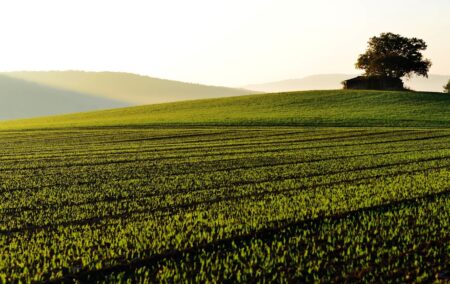Dear Minister Steenhuisen,
You have the chance to help significantly to transform the South African economy by illustrating to the people of South Africa that the key to prosperity in any society is the will of each person and community to put in the necessary effort and make the most of chances presented by the free market.
The starting key to demonstrating this and the fact that, contrary to popular belief, black people do, in fact, have economic freedom, is to cultivate an environment that is favourable to farming for income in rural areas. Government should strongly encourage and exhort residents of these areas to make use of existing opportunities in the agricultural landscape.
For the longest time, rural areas have been designed so that every household was given a sizable plot of land for subsistence farming. In the past, our ancestors living there relied more on subsistence farming than on buying food. Although most households still have access to these sizable plots of land, the majority no longer use them, as they are increasingly buying all their food. However, if agriculture is to play a larger role in transforming the rural economy, this needs to change, and those lands must once again be used. They can now be used for earning an income.
The Department should strengthen ties with traditional leaders of rural societies and introduce to these communities agricultural supply-chain businesses, which have a demand for fresh and dried agricultural products that can be grown in each of these rural societies.
The ideal supply-chain companies to introduce into the rural communities would be ones that cater to consumers that need low-cost, easily produced products that can be produced naturally, as our predecessors did, using materials like cow dung. That is, mostly produce that can be cultivated primarily with natural rainfall.
African Marmalade, owned by businesswoman Siphiwe Sithole, is one such supply-chain company with an extremely high demand for easily producible fresh and dried African indigenous products, which people in rural areas are already used to growing. African Marmalade supplies African indigenous products to markets in South Africa and some other parts of the African continent.
While I was speaking with Mme Sithole a few weeks ago, she informed me that, despite African Marmalade operating a farming project in Centurion, Gauteng, and going above and beyond to buy produce from small-scale farmers in rural areas of the country, such as those in Kwa-Zulu Natal, Mpumalanga, and Limpopo, the company has never been able to meet more than 20% of the demand it has.
Mme Sithole’s predicament indicates an existing demand, which rural communities should surely work to meet. Your department’s minimal intervention in this regard may significantly benefit both the rural and national economies.
It would be extremely beneficial for you to go forward in carrying out such a project by establishing relationships with rural areas’ leading churches and traditional healers’ organizations and asking them to encourage their members to take part. Examples of these churches include the Zion Christian Church, St. Engenas Zion Christian Church, St. John’s Apostolic Faith Mission Church, and Nazareth Baptist Church. With millions of members who reside in rural areas, these churches would not be opposed to the concept of assisting in the transformation of the lives of their churchgoers. If anything, they would undoubtedly value such an effort very highly.
A new consciousness is required in South Africa: a mind-set based on the ideals of people taking responsibility for their lives, understanding the supply and demand market, and realising that they may profit from the demand market by supplying what is demanded in order to change their life economically. Transforming the rural economy in the way this article suggests would significantly contribute to the advancement of such a consciousness.
While it would be ideal if people in rural areas actually owned the farming land they would use for such a project, your department must deal with the current reality and collaborate with traditional leaders who are these lands’ custodians, in order to help our people break free from the belief that they are powerless to improve their economic situation.
The days of our people relying for survival on government grants for the unemployed when they could work for a living must come to an end.
Best regards,
Tiego Thotse
The views of the writer are not necessarily the views of the Daily Friend or the IRR.
If you like what you have just read, support the Daily Friend

